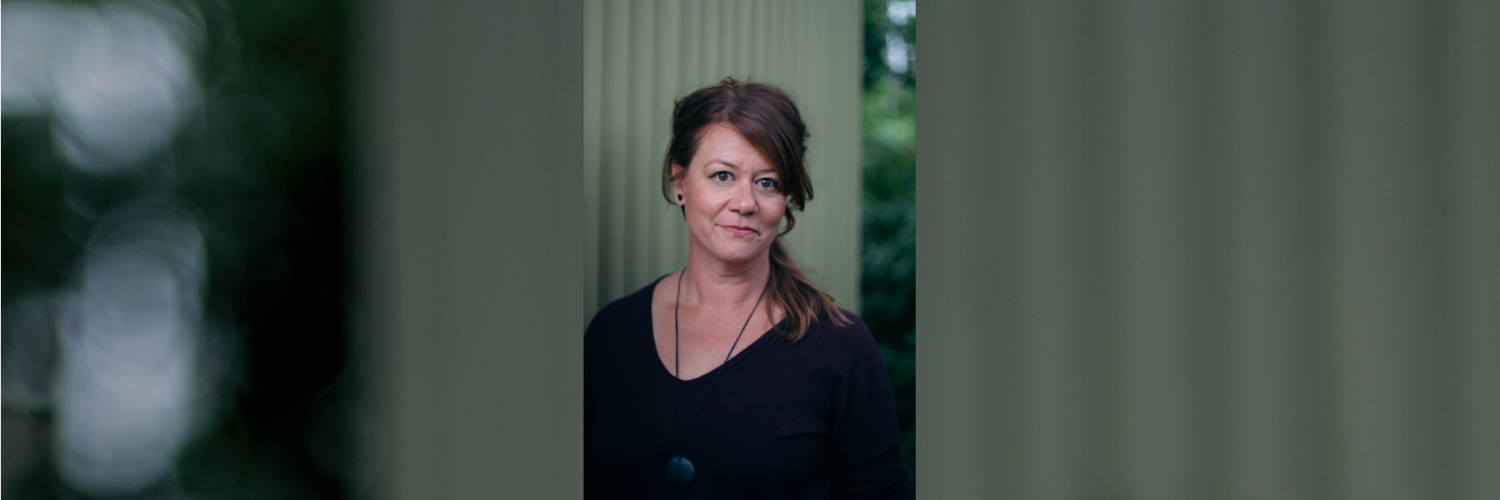
Anahera Maire Gildea (Ngāti Tukorehe) is a writer and artivist. She has worked extensively as a visual and performing artist, writer, and teacher. Her work has appeared in numerous journals and anthologies, and she has been an award finalist for both her poetry and short stories. Anahera has won the Huia Best Novel Extract in English and the Takahe Short story competition. In 2016 she published a book of poetry Poroporoaki to the Lord My God, Weaving the Via Dolorosa. In 2022 her long-awaited first full-length collection Sedition was published by the collective Taraheke (of which she is a founding member), much to the delight of her readership.
Sometimes writers talk about their book as if it is something they’ve birthed – a struggle as well as a gift. If you were to think of your book this way, who are its whanuanga? Who helped you bring this book into the world?
Great question. My first mihi goes to Michaela Keeble. He kānohi hōmiromiro, he mōhio ki te whakaputa pukapuka, he ētita pūkenga hoki. Without her, this book would not have been born at all. Her understanding of the publishing process enabled our collective, Taraheke, to weave a foundation for Sedition and surrender (Michaela’s first poetry collection) to emerge alongside each other. Of course, that mihi extends immediately to the other members of Taraheke, Nadine Anne Hura, Cassandra Barnett, and Anne-Marie Te Whiu. We all worked together to produce and bring this book into te ao mārama. And the circles of support and encouragement I have received continue outwards in beautiful ripples of whanaungatanga – he toa takitini.
Heoi, if there was a moment, a tohu, that was the real deciding factor in publishing this work, it was a kōrero I had with one of my aunties – nei rā te mihi ki a koe, whaea.
I was supposed to be at a noho at home at Tukorehe, arriving on Friday at around lunchtime but I was late and didn’t arrive till just after dinner. Aunty asked me what I’d been doing, and I told her that I’d been at the National Library reading poetry. Right then, in front of everyone, she smiled and said, “go on then, let’s hear it”.
For a second I held onto the hope that she was joking but she wasn’t. I stood up in the wharekai and recited the clutch of poems I’d earlier stood up at the National Library – every single one of which was filled with bad language and worse manners.
Afterwards, outside on the back porch, she called me over again.
“So, where’s your book, then?” she asked me.
“I dunno, Aunty,” I shrugged. “I don’t see the point sometimes.” And I launched into a rant about colonisation and publishing and audiences and gatekeeping, and she just nodded and listened until I was done.
“But what about me?” she said. “If you don’t publish it, how can I read it?”
Sedition is a collection that deals with pain, anger, grief and trauma. What tikanga or kawa did you apply to your writing process to keep yourself safe?
The individual works in this collection were written over a long period of time and so were, undoubtedly, beholden to the various tikanga of each situation. However, because I often deal with subject matter that is emotionally charged, I have developed practices that work for me, and enable me to maintain wellbeing. Though there are many of these, and I suspect will be nuanced for each person, there are ‘rituals’ I employ to help me transition in and out of heightened writing states. I will open (and close) with karakia to centre and align myself, and to enter into a relational space with the work, rather than just an intellectual one. I use strict timebox strategies when the work is tough emotionally. And I use water!! At the end of a writing session that has required deep introspection and analysis, I will most often find water – shower, ocean, river, rain – he momo pure. Ko te wai te waiora.
What was it like to hold your book in your hands for the first time?
You know, before you give birth you spend a lot of time thinking about what it will be like to hold your baby. But in that very moment, you are just exhausted. And your brain has left the building. Like that.
Sedition is published by your collective Taraheke, what was the driving force in deciding to self-publish?
This is a huge question! There were so many factors but the most salient was the desire to sidestep publishing as an industry. Rather than be beholden to market forces, Taraheke enabled us to interrogate the process of book publishing and question every aspect of releasing these books into the world. That means the needs of the book and the author dictated the process rather than commercial or market forces. Of course, this is aspirational, and navigation of this sea is as choppy as it gets. But with each project, we hope that we will learn and refine our processes, continue to revise, to prioritise for each author, and put Māori values at the centre of our decision-making.
What advice do you have for emerging Māori writers?
Never be afraid to go home. You are wanted there. You are loved. You are needed. Listen to your puku if you have to make a choice that you feel could compromise you. Expect to make mistakes. Embrace mistakes. Develop a community of people who tautoko each other more than they tautoko the work – although hopefully, they do that too.
And write before you worry. LOL.
Which book by a Māori author have you read lately that you loved and what did you love about it?
Coco Solid – How to Loiter in a Turf War. SO MUCH TO LOVE. The voice in this work is sharp, contemporary, unafraid to wade into the mess of life, and share opinions on it. It is uninterested in genre and unapologetic.




